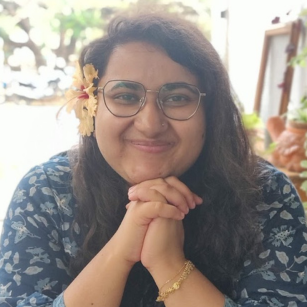The UK’s long standing partnership with Bangladesh’s research and development community has been absolutely critical to the country’s remarkable progress over the last forty years.
This is what Dr Mushtaque Chowdhury, Vice-Chair of BRAC, the world’s largest international non-government organisation (based in Bangladesh) will tell academics, charity leaders, Whitehall officials and MPs at a series of meetings in the UK this week, including at an event in Westminster hosted by the All Party Parliamentary Group for Bangladesh and the Institute of Development Studies (IDS).
Dr Chowdhury said:
“Collaboration between Bangladesh and the UK has helped to increase our understanding of how to break the cycle of extreme poverty. This learning around what works could make a significant contribution to the reduction of poverty in all of its forms globally, thereby reducing low and middle income countries’ need for aid.”
Melissa Leach, Director of the Institute of Development Studies said:
“Bangladesh’s economic and social development, despite the many continuing challenges the country faces, provides valuable lessons for the wider region and to all of us committed to reducing global poverty and inequality. The longstanding partnership between the UK and Bangladesh around support for development programmes and life-saving research is something we can be really proud of. It remains more important than ever that the UK continues to play a role in supporting international cooperation and country level innovation around poverty reduction if we want to see a more prosperous and safer world.”
Since independence in 1971 Bangladesh has graduated to lower middle-income status, reduced poverty, improved health services and education provision and modernised agriculture. Life expectancy at birth has increased by 18 years and Bangladesh has overtaken India in terms of human development progress.
The UK’s partnership with Bangladeshi organisations like BRAC has included a big focus on researching approaches to reducing poverty permanently. The UK’s Economic and Social Research Council (ESRC) and Department for International Development (DFID) joined forces ten years ago to set up the Joint Fund for Poverty Alleviation Research, which has supported 150 research projects worldwide and which has been influential in the design of interventions such as BRAC’s ground-breaking – Targeting the Ultra Poor Programme. UK and Bangladeshi development experts now argue that Bangladesh’s progress could provide valuable learning for the wider South Asia region and proves that development assistance can reduce countries’ dependency on aid from the UK and elsewhere.
BRAC’s Targeting the Ultra Poor Programme has helped improve the lives of countless Bangladesh men, women and children with 95% of programme participants graduating out of extreme poverty. BRAC’s work, which includes providing small loans to poor households to set up small business, combating disease and improving local health and education services in eleven countries including Bangladesh itself, is estimated to have touched the lives of 1 in 55 people in the world. One such example is Shamsunnahar, from Moulvibazar, Rangpur in Bangladesh. Married at 13 with no access to education Shamsunnahar attended training as part of the Ultra Poor programme and as a result went on to set up her own poultry business, was able to invest in her children’s education and continues to encourage women in her community to take action to improve their own lives.
Ends
Interview:
For more information or to arrange an interview with Dr Mushtaque Chowdhury please contact Hannah Corbett, IDS, +44 (0)7701286978 or [email protected]
To attend the UK parliamentevent:
Tuesday 28 February, 4-5pm, Committee Room 11, Houses of Parliament
The event is being co-convened with the All Party Parliamentary Group for Bangladesh and the Institute of Development Studies, chaired by Anne Main MP and will be addressed by Saul Walker, DFID Chief of Staff, Asia, Caribbean and the Overseas Territories Division. Other Bangladeshi organisations attending include the Bangladesh Institute for Governance and Development, BRAC University, the James P Grant School of Public Health at BRAC University and the global health research institute icddr,b.
If you would like to attend please contact Sophie Robinson, IDS, [email protected]
Notes to Editors:
- The Institute of Development Studies (IDS) is a leading global institution for development research, teaching and learning, and impact and communications, based at the University of Sussex. Our vision is of equal and sustainable societies, locally and globally, where everyone can live secure, fulfilling lives free from poverty and injustice. We believe passionately that cutting-edge research, knowledge and evidence are crucial in shaping the changes needed for our broader vision to be realised, and to support people, societies and institutions to navigate the challenges ahead. See www.ids.ac.uk for more information.
- BRAC is the world’s largest development organisation, dedicated to empowering people living in poverty. It operates across 11 countries, touching the lives of 1 in every 55 people. See www.brac.net for more information.
In 2005, DFID and the ESRC formed a strategic partnership to provide a joint funding scheme for international development research. The aim of the scheme is to enhance the quality and impact of social science research, addressing the key international development goal of reducing poverty amongst the poorest countries and peoples of the world. Since 2005, the scheme has funded 150 research projects, held in 65 organisations. For more information go to www.impactinitiative.net
